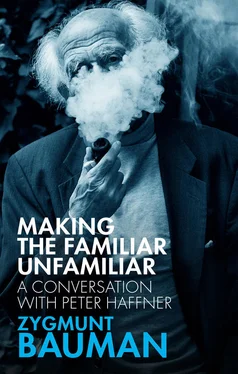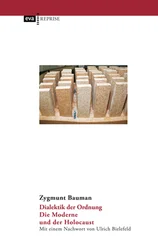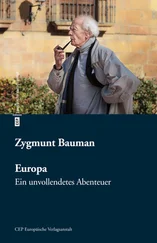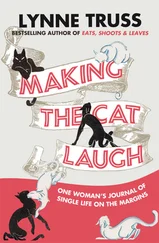In her memoirs, Janina writes that you took care of everything when she fell ill with puerperal fever after the birth of your twin daughters. You got up at night when the babies, Lydia and Irena, were crying, gave them a bottle; you changed nappies, washed them in the morning and hung them up to dry in the backyard. You took Anna, your oldest daughter, to the nursery, fetched her again. You waited in the long queues in front of the shops when doing the errands. And you did all this while also fulfilling your duties as a lecturer, supervising your students, writing your own dissertation and attending political meetings. How did you manage to do that?
As was the norm in academic life back then, I was more or less able to dispose of my time as I chose. I went to the university when I had to, to give a seminar or a lecture. Apart from that, I was a free man. I could stay in my office or go home, go for walks, dance, do whatever I liked. Janina, by comparison, worked in an office. She reviewed screenplays; she was a translator and editor at the Polish state-run film company. There was a time clock there, and it was thus clear that I had to be there for the children and the housework whenever she was at the office or ill. That did not lead to any tension; it was taken for granted.
Janina and you grew up in different circumstances. She came from a wealthy family of physicians; in your family, money was always tight. And Janina was probably not prepared for being a housewife, for cooking, cleaning, doing all the work that in her parents’ home had been done by servants.
I grew up in the kitchen. Cooking was routine work for me. Janina cooked when it was necessary. She followed recipes, with a cookbook in front of her – terribly boring. That is why she did not like it. I observed my mother every day working miracles at the cooker, creating something out of nothing. We had little money, and she was able to produce a tasty meal even out of the worst raw ingredients. In this way, I naturally acquired the skill of cookery. It is not a talent, and neither was I taught it. I simply watched how it was done.
Janina said of you that you are the ‘Jewish mother’. You still love to cook today, even though you do not have to.
I love it because cooking is creative. I have come to realize that what you do in the kitchen resembles very much what you do at the computer when you write: you create something. It is creative work: interesting, not boring. What’s more, a good couple is not a combination of two identical people. A good couple is one where the partners complement each other. What one of them lacks, the other possesses. That was the case with Janina and me. She did not like cooking very much; I did – and thus we complemented each other.
Конец ознакомительного фрагмента.
Текст предоставлен ООО «ЛитРес».
Прочитайте эту книгу целиком, на ЛитРес.
Безопасно оплатить книгу можно банковской картой Visa, MasterCard, Maestro, со счета мобильного телефона, с платежного терминала, в салоне МТС или Связной, через PayPal, WebMoney, Яндекс.Деньги, QIWI Кошелек, бонусными картами или другим удобным Вам способом.












